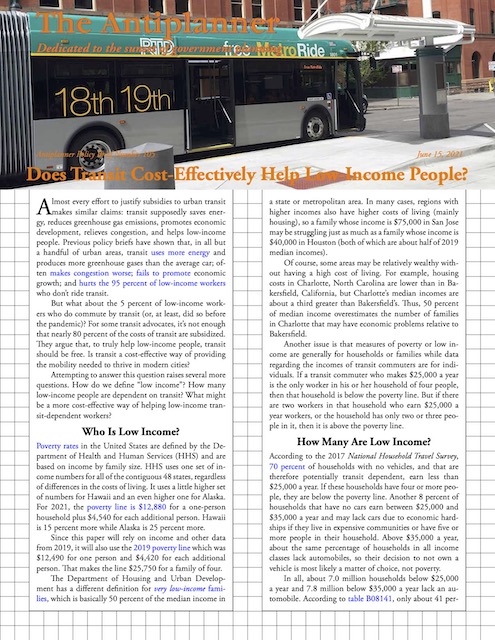Almost every effort to justify subsidies to urban transit makes similar claims: transit supposedly saves energy, reduces greenhouse gas emissions, promotes economic development, relieves congestion, and helps low-income people. Previous policy briefs have shown that, in all but a handful of urban areas, transit uses more energy and produces more greenhouse gases than the average car; often makes congestion worse; fails to promote economic growth; and hurts the 95 percent of low-income workers who don’t ride transit.
 Click image to download a three-page PDF of this policy brief.
Click image to download a three-page PDF of this policy brief.
But what about the 5 percent of low-income workers who do commute by transit (or, at least, did so before the pandemic)? For some transit advocates, it’s not enough that nearly 80 percent of the costs of transit are subsidized. They argue that, to truly help low-income people, transit should be free. Is transit a cost-effective way of providing mobility needed to thrive in modern cities? Continue reading







